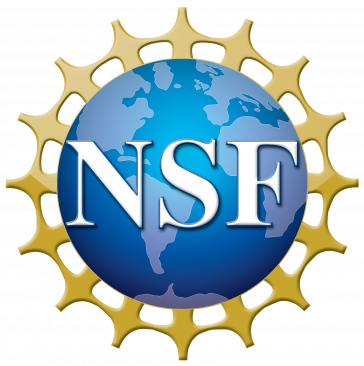As researchers complete their academic degrees and prepare to enter the workforce, they can sharpen their competitive edge by building skills in time management and supervisory relationships, mastering the basics of a successful job interview and becoming a more effective science communicator. Now they can also obtain a training certificate.
The Career Development Program (CDP) is designed to facilitate workforce development among Rhode Island researchers through a partnership between Metcalf Institute and the Rhode Island Consortium for Coastal Ecology, Assessment, Innovation & Modeling (RI C-AIM), supported by Rhode Island National Science Foundation Established Program to Stimulate Competitive Research. The CDP helps RI C-AIM students, faculty, and staff improve communication and professional skills through training and resources in topics typically absent from formal STEM degree programs. The CDP also fosters interactions across RI C-AIM partner institutions.
The Career Development Program Certificate
Show potential employers that you’ve gained a unique set of professional skills in management, inclusion, and science communication that set you apart from the competition. Graduate students, post-doctoral scholars and college seniors planning to pursue advanced education in STEM can earn a CDP Certificate.
Registration is closed for new participants, but existing participants can still complete the credits they need to earn their certificates.
To earn the Career Development Program Certificate, participants must attend 5 required programs and 3 electives, chosen from modules offered by Metcalf Institute or other departments, colleges, institutions or organizations. Trainings can be in-person, webinars or a combination of the two. Participants who attend training programs through other departments, colleges, institutions or organizations can obtain credit toward the CDP Certificate by emailing the details to Katharine McDuffie, Metcalf Institute program director, at mcduffie@uri.edu.
- Creating an Individual Development Plan
- Fundamentals of Diversity and Inclusion
- Effective Mentorship
- Fundamentals of Science Communication
- Time Management
Certificate Electives and Themes
| Science Communication | Research | Career Exploration | Job Readiness |
|
| Communicating scientific uncertainty | ✔ | ✔ | ||
| Data visualization | ✔ | ✔ | ✔ | |
| Developing written credentials and application materials | ✔ | |||
| Elevator Pitch | ✔ | ✔ | ||
| Fundamentals of job interviewing and salary negotiation | ✔ | |||
| Fundamentals of peer review | ✔ | |||
| Fundamentals of technology commercialization and intellectual property | ✔ | ✔ | ||
| Interviewing with journalists | ✔ | |||
| Lab management | ✔ | |||
| Managing research projects | ✔ | |||
| Managing supervisory and collaborative relationships | ✔ | ✔ | ||
| Mentorship | ✔ | ✔ | ✔ | |
| Networking | ✔ | ✔ | ✔ | |
| Planning and funding research projects | ✔ | |||
| Pitching your science to journalists | ✔ | ✔ | ✔ | |
| Presenting for different audiences | ✔ | ✔ | ✔ | ✔ |
| Non-academic career paths | ✔ | ✔ | ||
| Scientific poster design | ✔ | ✔ | ||
| Storytelling in science | ✔ | ✔ | ||
| Writing and submitting scientific papers | ✔ | ✔ | ||
| Writing for different audiences | ✔ | |||
| Preparing for job interviews | ✔ | |||
| Creating a CV | ✔ | |||
| Salary Negotiation | ✔ |

This work is supported in part by the RI Science and Technology Advisory Committee through RI Commerce as part of its award to the RI Consortium for Coastal Ecology Assessment, Innovation & Modeling (under RI NSF EPSCoR Cooperative Agreement #OIA-1655221). Any opinions, findings, and conclusions or recommendations expressed in this material are those of the author(s) and do not necessarily reflect the views of the National Science Foundation.
